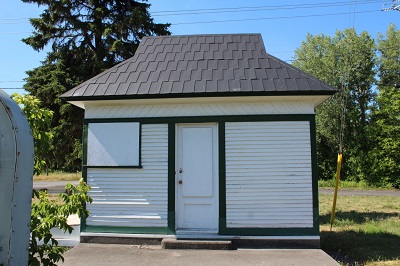Other Name(s)
Chambly Canal National Historic Site of Canada
Chambly Canal
Canal de Chambly
Links and documents
Construction Date(s)
1831/01/01 to 1843/01/01
Listed on the Canadian Register:
2010/07/26
 Statement of Significance
Statement of Significance
Description of Historic Place
Chambly Canal National Historic Site of Canada is located on the west bank of the Richelieu River, south-east of Montréal, Quebec. Twenty kilometres long, the Chambly Canal is a section of a waterway constructed in the 19th century between Chambly and Saint-Jean-sur-Richelieu on Québec’s Richelieu River. The canal constitutes part of an inland water transportation route joining Montréal and New York City. The site includes the waterway itself, nine locks, five weirs, two piers, dams, dikes and bridges, and several other elements and buildings associated with the operation of the canal. Official recognition refers to the legal property of Parks Canada Agency.
Heritage Value
Chambly Canal was designated a national historic site of Canada in 1929 because:
- it is part of Canada's National Canal System.
The heritage value of Chambly Canal lies in the longstanding interrelationship between the composite parts of the canal’s cultural landscape, namely the Richelieu River, the canal route, the dam on Fryer Island, and the buildings. The Chambly Canal was originally constructed to bypass the Chambly Rapids on the Richelieu River. Designed by engineer William R. Hopkins, it constituted eleven kilometres of canal built against one river bank with a berm or embankment to maintain the raised water, and an eight-kilometre cut parallel to the river. Built in 1831-1843 as a commercial route, it was altered in 1848-60, 1869-1880, and 1880-1895, and restored by Parks Canada for recreational use in 1977-1980 and 1990.
Source: Historic Sites and Monuments Board of Canada, Minutes, November 1988, June 1994.
Character-Defining Elements
Key elements that contribute to the heritage character of the site include:
- its location on the west bank of the Richelieu River, south-east of Montréal, Quebec;
- the forms and features of the canal itself which govern the cultural landscape, including its route, its footprint, its width or breadth, its banks, its jetties and its wharfs; and
- viewscapes to 19th and early 20th century economic development along the banks of the canal associated with the time when this was a commercial transportation route.
Key components of the present canal that testify to the material and engineering technologies that have created and maintained it over time, including:
- the new locks that mark the canal route between Chambly and Saint-Jean-sur-Richelieu;
- the steep lower entry to the canal at Chambly;
- the lock chamber spaces that punctuate the canal route;
- the dam that connects the waterway to the river at Fryer Island; and
- the movable bridges that link the two waterways of the canal.
Key components of the cultural landscape of the present canal that provide tangible evidence of the historical use and evolution of the canal site over time, including:
- the freight road running alongside the canal on the east bank;
- the service road running alongside the canal on the west bank; and
- the many buildings associated with the operation of the canal, and in particular the old lockmaster’s house adjacent to three lock levels on the lower entry to the canal at Chambly.
 Recognition
Recognition
Jurisdiction
Federal
Recognition Authority
Government of Canada
Recognition Statute
Historic Sites and Monuments Act
Recognition Type
National Historic Site of Canada
Recognition Date
1929/05/17
 Historical Information
Historical Information
Significant Date(s)
1848/01/01 to 1860/01/01
1868/01/01 to 1880/01/01
1880/01/01 to 1895/01/01
1977/01/01 to 1980/01/01
1990/01/01 to 1990/01/01
Theme - Category and Type
- Developing Economies
- Communications and Transportation
Function - Category and Type
Current
Historic
- Transport-Water
- Canal or Canal Works
Architect / Designer
William R. Hopkins
Builder
n/a
 Additional Information
Additional Information
Location of Supporting Documentation
National Historic Sites Directorate, Documentation Centre, 5th Floor, Room 89, 25 Eddy Street, Gatineau, Quebec.
Cross-Reference to Collection
Fed/Prov/Terr Identifier
604
Status
Published
Related Places

Woodworking Shop
The Woodworking Shop, part of Chambly Canal National Historic Site of Canada, is located at a workshop complex adjacent to the Chambly Canal system. It is a large, wood clad…

Cabin at Bridge 2
The Cabin at Bridge 2 is located on a quiet stretch of the Chambly Canal National Historic Site of Canada. It is a small, wooden building with a shingled, broken gable roof. The…